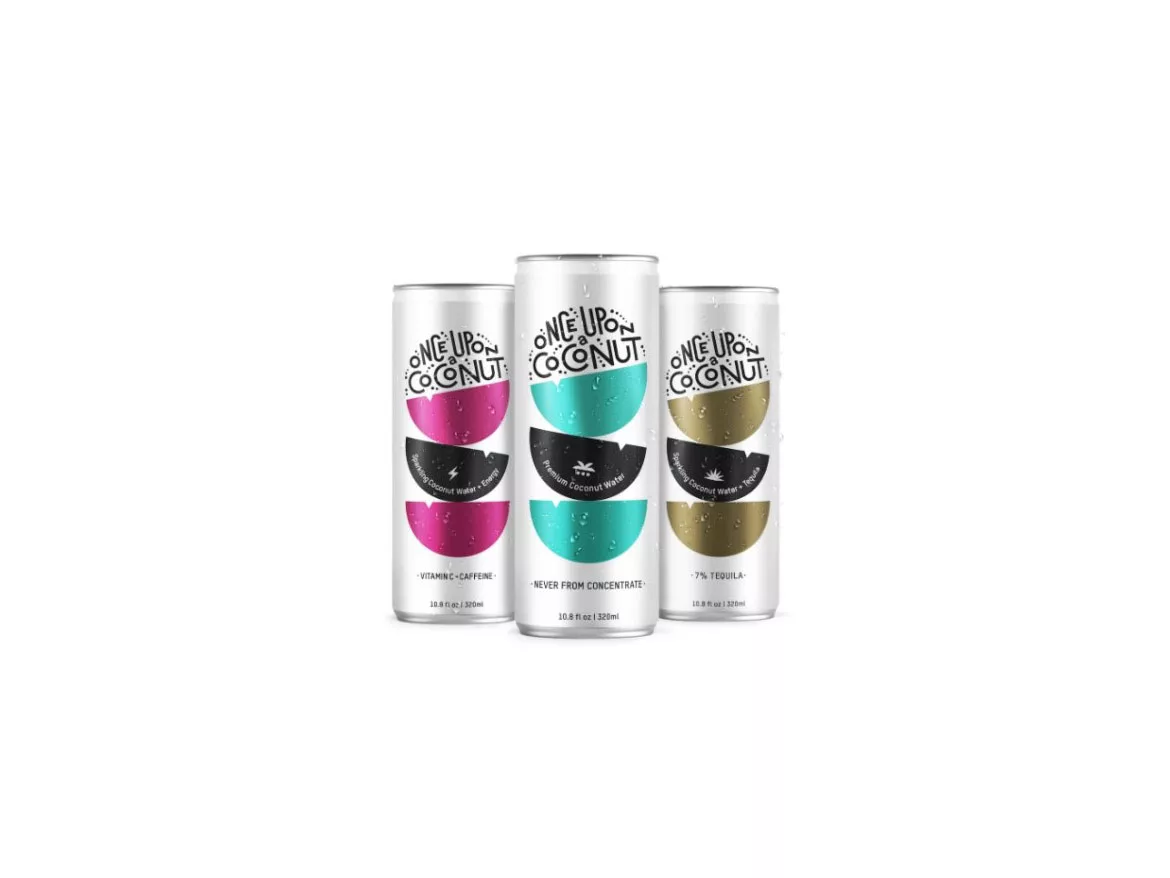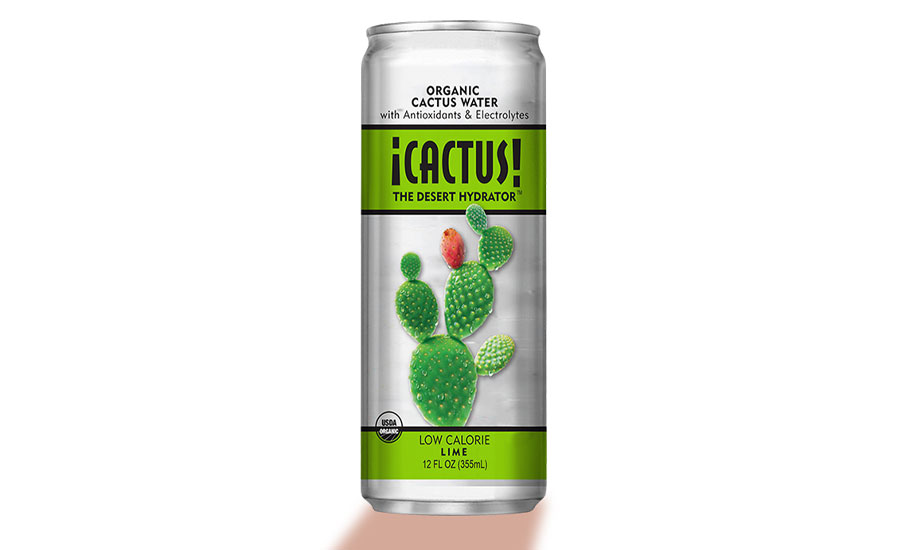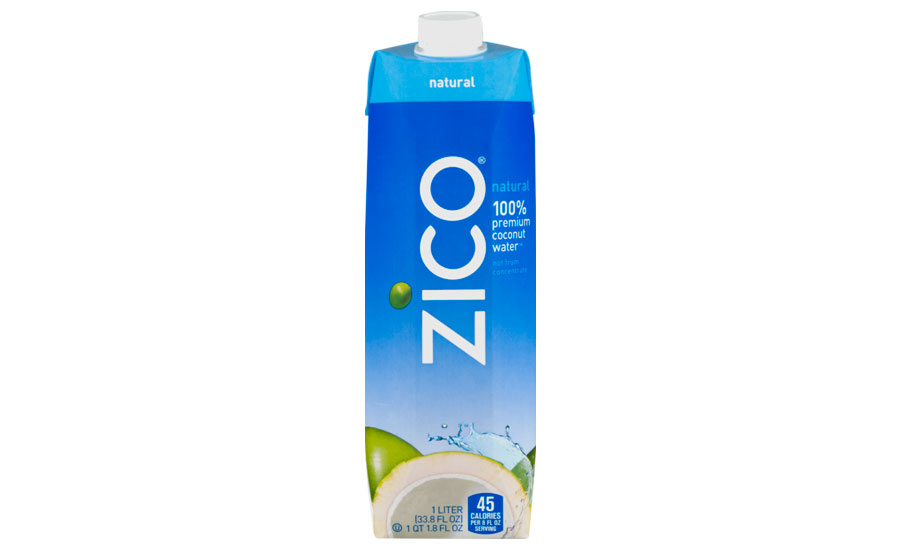Plant water category sees ups and downs
Plant waters see growth, coconut remains most prominent

If you toss a coconut into the ocean, it will rise and fall with the waves, but remain afloat. Much like the physics of a coconut, plant waters as a category have seen their fair share of ups and downs the past five years while “riding the waves” of fluctuating sales and consumer interest. However, coconut water remains one of the most market-viable plant waters, maintaining a decent market share when compared with other categories. Nevertheless, it remains to be seen how coconut water will stack up against newer plant waters gaining traction in the market.
There are a wide variety of plant waters from which to choose, including tree waters (such as maple and birch), aloe beverages, coconut water, artichoke water and cactus water. According to New York-based Beverage Marketing Corporation (BMC), plant waters are the fastest-growing segment of the plant-based beverage market. Yet, its performance has not been consistent.

Image courtesy of The Cactus Water Co. LLC
Rising and falling interest
Kishan Vasani, co-founder and CEO of India-based Spoonshot, notes that, except for a brief spike between 2014 and 2017, consumer interest in plant-based waters has been declining.
“Based on references to the topic in influencer and consumer blogs and articles, interest in plant-based waters has registered an overall decline of 53% since 2015, but there have been occasional resurgences,” he says. “For instance, since November 2020, there has been an uptick in interest by nearly 50% after a decline over the previous two years.”
Spoonshot’s Vasani notes the declining interest in plant-based waters can be attributed to supply issues, as the sources of these waters are limited by geography and season.
“Birch water, for example, is produced only toward the end of winter and so is not available the whole year round,” Vasani explains. “The same is true of nopal cactus as well. Some of these ingredients are also not available in all regions and are therefore dependent on imports, which may be affected due to the pandemic.”
Vasani notes these issues can make supply irregular and bump up prices, which can impede uptake among consumers at a time when the pandemic has negatively impacted the economic situation for many consumers.
Although plant-based waters have weathered declining interest and supply issues, the market still has registered volume growth. BMC’s “U.S. Plant Based Water Beverage Market” report states that the plant-based water beverage market saw volume sales reach 57.1 million gallons in 2020. This is up from the 40.5 million gallons in 2015, amounting to a compound annual growth (CAGR) rate of 7.1% for the 2015-2020 timeframe. Coconut water accounts for the largest share of this volume at 77%; however, this is down from its 81.7% market share in 2015. Meanwhile, plant waters increased its market share from 18.3% in 2015 to 23%, according to BMC.
BMC’s report notes that OKF and Viloe, both aloe water brands, were among the Top 5 plant-based waters in 2020. In the report, plant-based waters overall had amassed $581.7 million in wholesale dollar sales for 2020, a 2.6% increase over 2019.

Image courtesy of ZICO
Key players and shifts
All Market Inc.’s Vita Coco remains the dominate player in the space but has not seen many brands challenge its status, according to BMC. BMC notes the coconut water category has tilted back toward commodity status, with shelves growing clogged with retailers’ private-label offerings and value-oriented steel-can brands. Despite this, Vita Coco stayed the course for innovation, diversifying beyond coconut water.
Some attempted entries into the coconut water category have included PowerCoco, which combined coconut water with sports drink ingredients, as well as CocoCafe, which melded coconut water and espresso, both of which have since been discontinued. CocoLibre offered a sparkling take on coconut water, but struggled to gain a following, the report notes.
Also noting the decline of plant waters, Caleb Bryant, associate director of food and drink at Chicago-based Mintel, suggests that the popularity of coconut water appears to have stagnated or even declined.
“This was evidenced by Coca-Cola’s announcement to discontinue ZICO, which was eventually sold back to its original owners, PowerPlant Ventures,” Bryant explains. “Furthermore, there have been few noteworthy new coconut water product launches in the last 12 months. Contrast the performance of coconut water to functional waters and plant-based milks, both of which are categories with strong market growth.”
In 2020, The Coca-Cola Co., Atlanta, announced its plans to discontinue the ZICO brand. However, in January, the announcement of its sale to PowerPlant Ventures reintroduced the brand to the market.
“We are incredibly proud of the results we achieved growing ZICO when it was a part of the Coca-Cola family of brands and wish PowerPlant Ventures continued success as they take the ZICO brand on a new journey,” said Manolo Arroyo, global chief marketing officer of The Coca-Cola Co., in a statement.
The new company, named ZICO Rising, Long Beach, Calif., will be a homecoming for ZICO under the PowerPlant Ventures portfolio, as well as a new beginning for the beverage brand. Powerplant has enlisted industry veterans Thomas Hicks and Alan George to lead the brand as CEO and chief financial officer, respectively. Hicks and George have long-standing, impressive track records, with the pair having worked together to advance both Naked Juice and Monster Energy’s Natural Division.
“I respect the decision of Coca-Cola to focus on other elements of their beverage business,” ZICO Founder Mark Rampolla said. “I still have a lot of love for ZICO, and I know consumers do too. We are thrilled to acquire the company and thankful for the support from Coca-Cola.”
Emerging plant waters
Demographic-wise, coconut water has not expanded far past its base of younger health-conscious consumers, possibly due to coconut water’s polarizing flavor profile and high price relative to other hydrating beverages such as bottled water and sports drinks, Mintel’s Bryant says. However, cactus water brand Caliwater is a brand to keep an eye on, he says.
“While not new, as [Caliwater’s cactus water] was originally launched in 2014, Caliwater recently relaunched with new packaging and a new formulation. The product is said to provide hydration, refreshment, contain antioxidants, and have less sugar and fewer calories than coconut water,” he says. “The novelty factor of cactus water may spark consumers’ interest. Caliwater is partially owned by actress Vanessa Hudgens who has amassed nearly 41 million Instagram followers. Hudgens promotes the brand, thus exposing Caliwater to millions of potential consumers.”
Unlike plant-based waters, functional and enhanced waters are growing because they are not dependent on seasonality or geography. Spoonshot’s Vasani notes that the competition between functional waters and plant waters has contributed to fluctuations in interest in plant waters.
“Functional waters are still a relatively small category, but have been gaining some ground,” Vasani says. “Consumer interest in the category grew by 431% over the last year, though from a small base. Business interest grew by 293% over the same period, but there has been a cyclical trend since 2016.
“[Functional/enhanced] waters are more easily available and provide not just a hydration alternative to plain water, but also a range of functional benefits tailored for different requirements,” he continues. “These benefits include vitamin/mineral-fortified water, electrolyte water, alkaline water, relaxation water and so on.”
To build up the plant water category, Vasani points out that plant waters could be incorporated into other drinks or other formats, such as dry drink mixes/powders. Plant waters also could see more success as limited-edition seasonal beverages or as ingredients in other drink formats.
Coconut holds steady
Despite ups and downs within the plant water category, Vasani notes that coconut water continues to be popular among consumers. Between 2019 and 2020, social media conversations on coconut water increased by 135%, according to Spoonshot’s analysis.
“Coconut water continues to be popular for its health and hydration benefits. Plus it is high in various minerals and electrolytes, making it a good post-workout drink,” Vasani says. “Coconut water is also becoming a popular ingredient in various ready-to-drink options, both alcoholic and non-alcoholic.”
Founded by Yair Tygiel and Luke McKenna, CoCo & Co., Brooklyn, N.Y., with a mantra of “We Believe in the Social Power of Coconut,” launched a portfolio of spiked sparkling coconut waters and fruit juices in May.
Aloe water also experienced a modest increase of 12% in conversations from 2019 to 2020.
On the flipside, maple water and birch water declined by 48% and 40%, respectively, between 2019 and 2020, Spoonshot market intelligence points out.
Plant waters flowing
With waning interest in plant waters overall, Spoonshot says coconut water remains the only major player in the category, and even that is struggling due to supply chain issues, as the bulk of coconuts are grown in Asia.
“The coconut industry is also rife with ethical and sustainability issues, and this has even seen retailers like Costco stop buying coconut products over allegations over the use of forced monkey labor to harvest coconuts,” Spoonshot’s Visani says. “For the category to see success in the long term, these issues need to be sorted out as consumers become more concerned over where and how their food is being sourced.”
Despite the ebb and flow of the category, experts note ongoing growth still remains likely.
According to a June article by New York-based MarketWatch, the worldwide plant-based waters market is projected to grow at a CAGR of 19% between 2019 and 2025, crossing the $1.2 billion mark by 2025. The article notes that consumers can look forward to continued innovation in the category and new product entries to keep things interesting in the realm of plant waters.
Looking for a reprint of this article?
From high-res PDFs to custom plaques, order your copy today!






